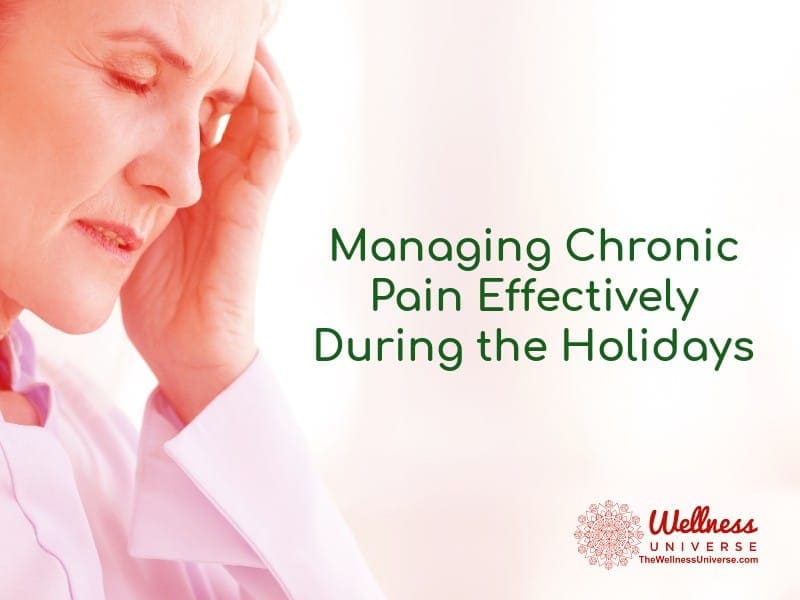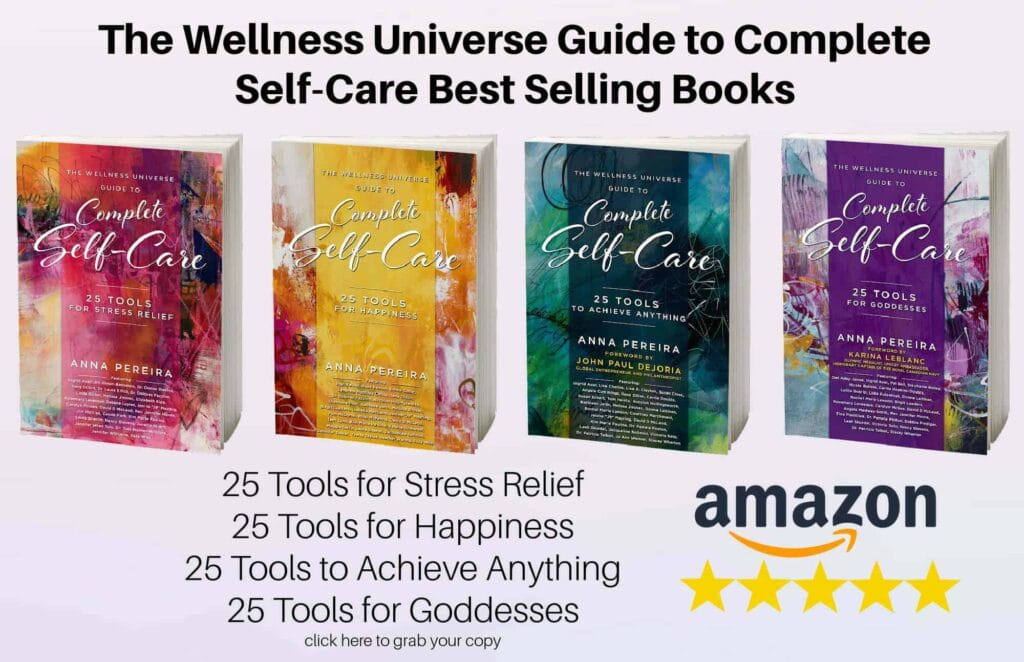Managing chronic pain during the holidays can be challenging. The season is often filled with social gatherings, travel, and various obligations that can increase stress and exacerbate pain. However, with thoughtful planning and a focus on self-care, it’s possible to enjoy the holiday season while managing chronic pain effectively. Here’s a guide on navigating the holidays with chronic pain, offering strategies to maintain your well-being while participating in the festivities.
What Is Chronic Pain?
Chronic pain is any pain—physical, mental, emotional, or spiritual—that is felt for 15 days out of thirty for three months or more. The brain cannot tell the difference between one kind of pain and another—it all sends the same signal, “It hurts,” to the brain.
Understanding the Challenges of Chronic Pain During the Holidays
The holiday season is typically associated with joy, celebration, and togetherness, but for individuals with chronic pain, it can also bring increased challenges. Some common difficulties include:
- Increased Stress: The holidays often come with expectations from others and ourselves. The pressure to attend events, prepare meals, buy gifts, and create a festive atmosphere can significantly increase stress, which may worsen chronic pain.
- Disrupted Routines: Regular routines that help manage pain, such as exercise, sleep, and dietary habits, may be disrupted during the holidays. Travel, late-night events, and indulgent foods can all interfere with these routines, making pain management more difficult.
- Social Expectations: Despite pain, the desire to participate fully in social activities can lead to overexertion and flare-ups. There’s often a sense of obligation to attend family gatherings or events, even when resting might be better.
- Emotional Triggers: The holidays can bring up emotional triggers related to chronic pain, such as feelings of isolation, frustration, or sadness, especially if past experiences were harrowing. These emotions can increase stress and pain perception.
Strategies for Managing Chronic Pain During the Holidays
Despite these challenges, several strategies can help manage chronic pain effectively during the holiday season:
- Prioritize Self-Care: Self-care is crucial for managing chronic pain, especially during the holidays. Prioritizing your well-being over the demands of the season can help you maintain better control over your pain.
- Set Boundaries: Setting boundaries with yourself and others is essential. Be clear about what you can and cannot do, and don’t hesitate to say no to activities or events that might exacerbate your pain. Communicate your needs to family and friends so they understand your limitations.
- Schedule Downtime: Incorporate periods of rest into your holiday schedule. Plan for downtime before and after social events or tasks that may be physically or emotionally taxing. Use this time to relax, meditate, or practice gentle stretching.
- Stay Hydrated: Hydration is often overlooked during the busy holiday season, but staying hydrated is essential for managing pain. Dehydration can lead to muscle cramps and increased pain sensitivity, so drink plenty of water throughout the day.
Planning Ahead
Effective planning can help you manage chronic pain more efficiently during the holidays. By anticipating and preparing for potential challenges, you can reduce the likelihood of pain flare-ups.
- Plan Your Activities: Prioritize activities that are most important to you and plan them at times when your energy levels are highest. Break larger tasks into smaller, more manageable steps to avoid overexertion.
- Prepare for Travel: If you’re traveling, plan ahead for comfort. This might include bringing pillows, heating pads, or other pain-relief tools. Schedule breaks during long trips to stretch and move around.
- Simplify Tasks: Simplify holiday tasks wherever possible. For example, consider online shopping for gifts instead of going to crowded stores or asking for help with meal preparation. Using delivery services or delegating tasks can also alleviate some physical strain.
Maintain a Healthy Diet
The holiday season is often associated with indulgent foods, which can sometimes worsen chronic pain. Maintaining a balanced diet is essential for keeping inflammation in check and managing pain levels.
- Choose Anti-Inflammatory Foods: Focus on incorporating anti-inflammatory foods, such as leafy greens, berries, nuts, and fatty fish, into your holiday meals. These foods can help reduce inflammation and pain.
- Limit Sugar and Processed Foods: While it’s okay to enjoy treats in moderation, limit your intake of sugar and processed foods, as they can contribute to inflammation and exacerbate pain.
Stay Active, but Don’t Overdo It
Physical activity is essential for managing chronic pain, but it’s important to strike a balance during the holidays. Staying active can help reduce stiffness, improve mood, and maintain energy levels, but overexertion can lead to flare-ups.
- Incorporate Gentle Exercise: Engage in gentle exercises that don’t overstrain your body, such as walking, swimming, or yoga. These activities can help maintain mobility and reduce pain without causing excessive fatigue.
- Stretch Regularly: Stretching can help prevent stiffness and reduce pain. Incorporate gentle stretching into your daily routine, especially if you’ve been sitting for long periods or participating in activities that might strain your body.
- Listen to Your Body: Listen to your body’s signals and adjust your activity levels accordingly. If you feel pain or discomfort, take a break and rest. Pushing through pain can lead to more severe flare-ups later.
Manage Stress and Emotional Well-Being
The holidays can be an emotionally charged time, and managing stress is crucial for controlling chronic pain. High stress levels can increase pain perception and trigger flare-ups, so it’s important to incorporate stress-reduction techniques into your routine.
- Practice Mindfulness and Meditation: Mindfulness and meditation are powerful tools for managing stress and chronic pain. Even a few minutes of focused breathing or meditation daily can help calm the mind and reduce pain.
- Connect with Supportive People: Surround yourself with supportive friends and family who understand your condition and respect your boundaries. Talking to someone who listens without judgment can help alleviate emotional stress.
- Engage in Activities You Enjoy: Make time for activities that bring you joy and relaxation. Whether reading, listening to music, or spending time with loved ones, engaging in pleasurable activities can improve your mood and reduce stress.
Prepare for Social Gatherings
Social gatherings are a central part of the holiday season, but they can also be physically and emotionally demanding for those with chronic pain. By preparing in advance, you can participate in these events while minimizing the impact on your pain levels.
- Communicate Your Needs: Before attending a social gathering, communicate your needs to the host. This might include requesting a comfortable seating arrangement, a quiet resting space, or specific dietary options that suit your needs.
- Pace Yourself: Don’t feel obligated to stay for the entire duration of an event. Give yourself permission to leave early if you start to feel fatigued or if your pain levels increase. It’s okay to take breaks or step outside for some fresh air if needed.
- Focus on Enjoyment, Not Perfection: It’s easy to get caught up in the pressure to create the “perfect” holiday experience, but focusing on enjoying the moment is more important. Let go of perfectionist tendencies and prioritize your well-being over external expectations.
Adapt Traditions to Suit Your Needs
Traditions are an important part of the holiday season, but they may need to be adapted to accommodate your chronic pain. Making adjustments to holiday traditions can help you participate in the festivities without overexerting yourself.
- Modify Physical Activities: If certain traditions involve physical activities that are too strenuous, consider modifying them. For example, instead of hosting a large dinner party, you might opt for a smaller gathering or a potluck where guests contribute to the meal.
- Create New Traditions: Consider creating new traditions that are more manageable for your current circumstances. This could include activities that are less physically demanding, such as watching holiday movies, doing a craft project, or having a quiet evening with loved ones.
- Embrace Simplicity: Simplifying holiday traditions can reduce stress and make the season more enjoyable. Focus on the aspects of the holidays that bring you the most joy and let go of any traditions that feel burdensome.
Take Care of Your Mental Health
The holidays can be an emotionally difficult time for many, and chronic pain can amplify these feelings. Taking care of your mental health is just as important as managing physical pain.
- Acknowledge Your Emotions: It’s normal to feel a range of emotions during the holidays, including sadness, frustration, or loneliness. Acknowledge these emotions without judgment and allow yourself to process them.
- Seek Support: If you’re struggling with your mental health, don’t hesitate to seek support from a therapist, counselor, or support group. Talking to someone who understands your situation can provide comfort and guidance.
- Practice Gratitude: Focusing on gratitude can help shift your perspective and improve your mood. Consider keeping a gratitude journal or taking a moment each day to reflect on what you’re thankful for, no matter how small.
Utilize Pain Management Tools
It’s important to continue using the pain management tools that work best for you during the holiday season. Whether it’s medication, physical therapy, or alternative treatments, make sure you have access to the tools you need to manage your pain effectively.
- Stay on Top of Medications: If you use medications to manage your pain, take them as prescribed and track when you need to refill your prescriptions. Consider setting reminders on your phone to ensure you don’t miss a dose, especially during busy days.
- Use Assistive Devices: If you use assistive devices, such as braces, orthotics, or mobility aids, be sure to bring them with you to holiday events or when traveling. These tools can help reduce strain and prevent pain flare-ups.
- Explore Complementary Therapies: Complementary therapies, such as acupuncture, massage, or aromatherapy, can provide additional relief from chronic pain. Consider scheduling a session before or after holiday events to help manage stress and pain.
Managing chronic pain during the holidays requires careful planning, self-awareness, and a commitment to self-care. By prioritizing your well-being, setting boundaries, and adapting traditions, you can enjoy the holiday season while keeping your pain under control. Remember that it’s okay to make adjustments to suit your needs and that the most important aspect of the holidays is to create moments of joy and connection that are meaningful to you. With the right strategies in place, you can navigate the holiday season with chronic pain and emerge feeling empowered and refreshed.
Connect with Elizabeth on The Wellness Universe and follow her on Facebook and Instagram.
The Wellness Universe Guide to Complete Self-Care, 25 Tools for Life will be available January 2025!
Get notified and receive a free book HERE.
This beautiful quote is from Contributor: Elizabeth Kipp who wrote Blessing for Your Best Life.
The Wellness Universe is honored to support our charity of choice the Karina LeBlanc Foundation. Empowering young women to bring to light their inner greatness.
Welcome to Wellnesspalooza!
Join us for The Wellness Universe 10-Year Anniversary!
Over 40 sessions for mind, body, spirit, and financial well-being.
Early Bird 90% off going on now! https://bit.ly/Wellnesspalooza2025
Heal Your Chakras. Heal Your Life
Learn how the health of your chakras impacts your life and discover the powerful healing available to you as you heal the underlying causes.
Join us Live – https://bit.ly/HealYourChakraswLindaD
Elizabeth is a Health Facilitator, Empowerment Coach, EFT/Tapping and Ancestral Clearing Practitioner, and Kundalini Yoga Teacher, helping people to step into the power of their own healing. She has turned her attention as a patient advocate and health facilitator in service to the alarmingly high population of people who suffer from stress, chronic pain, and the quest for a life free from suffering.










This article beautifully highlights the challenges of managing chronic pain during the holidays and offers much-needed strategies for navigating this festive but often stressful time.
The reminder to prioritize self-care and plan thoughtfully resonates deeply, as it empowers us to honor our well-being while still embracing the joy of the season.
Thank you, Elizabeth for shedding light on this important topic with such compassion and insight!